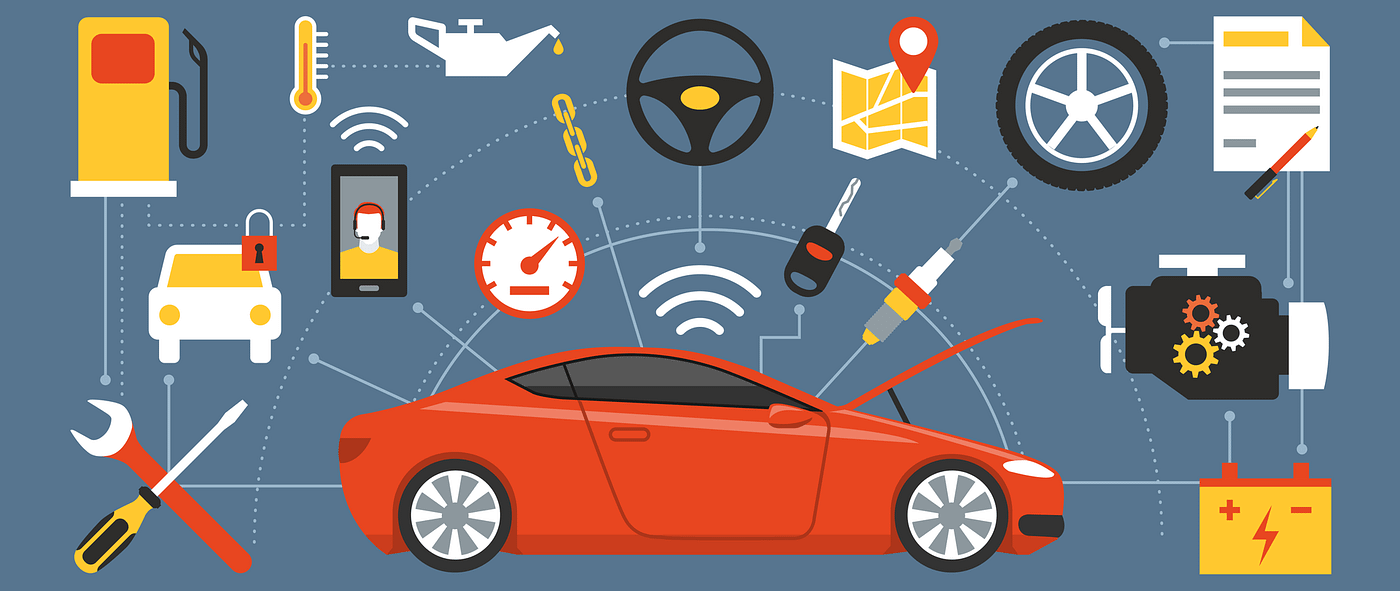All Categories
Featured
Keeping your vehicle in peak problem calls for interest to different upkeep jobs, with fluid checks being amongst the most essential. Car fluids play critical duties in guaranteeing smooth procedure, safety, and long life. Overlooking liquid upkeep can bring about considerable performance concerns or costly fixings. Listed below, we'll discover the importance of checking and keeping your car's liquids and ideas for doing so efficiently.
- Engine Oil: Safeguarding Vital Elements. Engine oil makes certain that the moving components of your engine remain moisturized, minimizing friction and avoiding overheating. Over time, engine oil breaks down or ends up being polluted, reducing its effectiveness. Without appropriate lubrication, engine parts can wear out promptly, causing reduced efficiency or complete failing.
How to Maintain: Examine the oil degree making use of the dipstick and round off if necessary. Follow your automobile's solution timetable for oil changes, typically every 3,000 to 7,500 miles, relying on the type of oil and your driving habits. 2. Coolant: Taking Care Of Engine Temperatures. Coolant, or antifreeze, assists manage your engine's temperature, preventing overheating in summertime and cold in winter. As it circulates, coolant takes in excess warmth and eliminates it via the radiator. Gradually, pollutants can accumulate, or the fluid might degrade, reducing its effectiveness.

Exactly How to Keep: Frequently examine coolant levels in the storage tank and examine for leaks or staining. Flush and replace coolant as suggested, normally every 2 to five years. 3. Transmission Liquid: Smooth Gear Procedure. Transmission fluid lubes the transmission system and guarantees smooth equipment changes. A well-kept transmission fluid stops overheating and shields internal parts from wear. Failing to keep this fluid can result in expensive repair work or replacements.
How to Keep: Examine the liquid degrees (if your lorry has a dipstick for transmission liquid) and monitor its shade. Scorched or dark fluid shows it's time for a change, usually every 30,000 to 60,000 miles. 4. Brake Fluid: Ensuring Safety. Brake liquid is important for transferring stress from your foot on the brake pedal to the stopping system, allowing your auto to quit effectively. Gradually, brake fluid can take in wetness, decreasing its boiling factor and compromising stopping performance.
Exactly How to Maintain: Check the brake fluid level and condition. Have it changed if it appears dark or unclean. Numerous suppliers suggest altering brake liquid every two years or as needed. 5. Power Steering Fluid: Easy Ability To Move. Power steering fluid enables simple and easy and smooth steering. Low degrees or polluted liquid can make guiding hard, increasing the risk of crashes.
Exactly How to Keep: Evaluate the liquid on a regular basis and fill up if degrees are low. Keep an eye out for leaks, which could lead to steering system damages if unresolved. 6. Windscreen Washing Machine Fluid: Clear Presence. Not related to performance, windscreen washing machine liquid is essential for maintaining presence. It aids keep the windshield clean, especially during bad climate or when dirt builds up.

Exactly How to Preserve: Replenish the tank as needed and utilize washing machine liquid made for your climate to stop freezing or spotting. Best Practices for Fluid Maintenance. Comply with the Producer's Arrange: Describe your car's proprietor handbook for upkeep periods particular to your vehicle. Monitor for Leaks: Spotting liquid leaks early can protect against serious damage. Search for pools or spots under your vehicle. Utilize the Correct Fluids: Always utilize fluids advised by your car's maker to stay clear of compatibility problems. Take Notice Of Warning Indicators: Control panel warning lights, strange smells, or unusual performance can indicate fluid-related issues. The Advantages of Routine Liquid Checks. Enhanced Efficiency: Fluids in good problem help all systems run efficiently. Expanded Lifespan: Correct lubrication and air conditioning protect against early wear and tear on parts. Improved Safety and security: Brake fluid and coolant are important for risk-free driving. Expense Cost savings: Resolving fluid problems early can avoid expensive repair services later. Final thought. Checking and maintaining your automobile's liquids is a important but straightforward component of vehicle ownership. By dedicating time to this necessary upkeep, you guarantee your car remains trusted, secure, and reliable for several years to find. Regular liquid checks help stop breakdowns and provide you assurance when traveling. Whether it's oil, coolant, or brake fluid, staying proactive with upkeep is the essential to long-lasting car health and wellness.
Latest Posts
Top 5 Must-Try Signature Cocktails at The Claridge Hotel's VUE Rooftop Bar
Published Dec 18, 24
1 min read
Top Benefits of WyHy’s Digital Banking Services
Published Dec 18, 24
1 min read
The Importance of Checking and Preserving Your Automobile's Fluids
Published Dec 18, 24
0 min read
More
Latest Posts
Top 5 Must-Try Signature Cocktails at The Claridge Hotel's VUE Rooftop Bar
Published Dec 18, 24
1 min read
Top Benefits of WyHy’s Digital Banking Services
Published Dec 18, 24
1 min read
The Importance of Checking and Preserving Your Automobile's Fluids
Published Dec 18, 24
0 min read